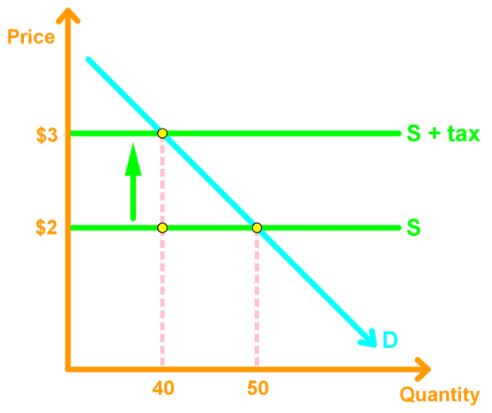Taxes
Topic Notes
Taxes
Tax Incidence: the division of tax burden between buyers and sellers.
When a good is taxed, then 3 things could happen:
- Price rises by the full amount of the tax.
- Buyers pay the tax - Price rise by a lesser amount than the tax
- Buyers and sellers share the burden of the tax - Price does not rise
- Sellers pay the tax
Effects of Taxes
Taxes on Sellers: Sellers treat taxes the same as an increase in production cost, so it shifts the supply curve leftward.
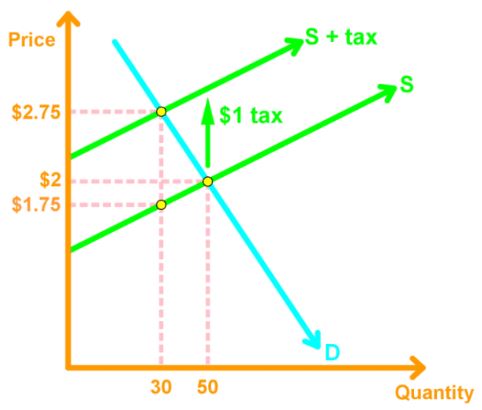
Conclusion: Buyers end up paying more because of tax, and sellers receive less money. There is deadweight loss.
Taxes on Buyers: Taxes make the item more expensive, so less people want to buy it. This causes the demand curve to shift leftward
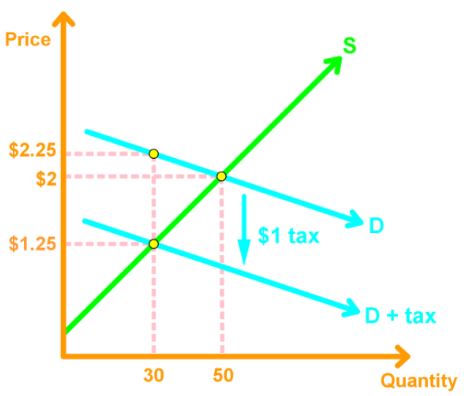
Conclusion: Buyers end up paying more because of tax, and sellers receive less money. There is deadweight loss.
Tax Incidence and Elasticity of Demand & Supply
For a perfectly inelastic demand curve, buyers pay all the taxes
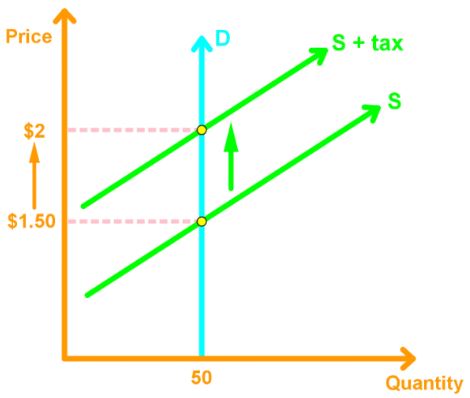
For a perfectly elastic demand curve, sellers pay all the taxes
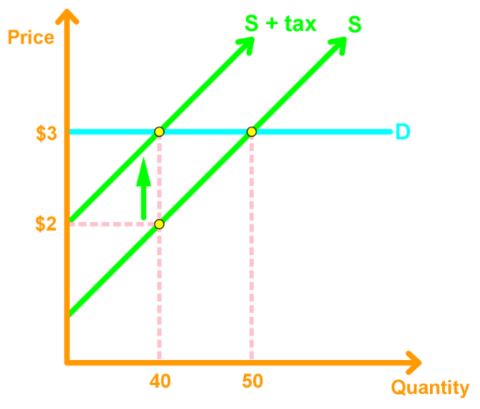
For a perfectly inelastic supply curve, sellers pay all the taxes
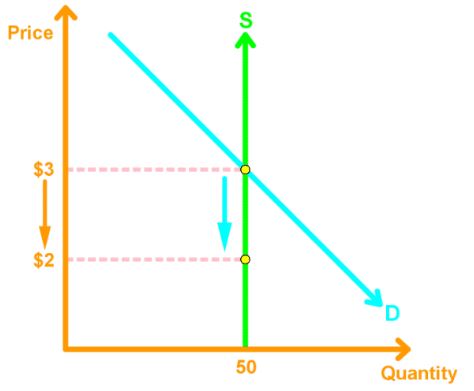
For a perfectly elastic supply curve, buyers pay all the taxes
